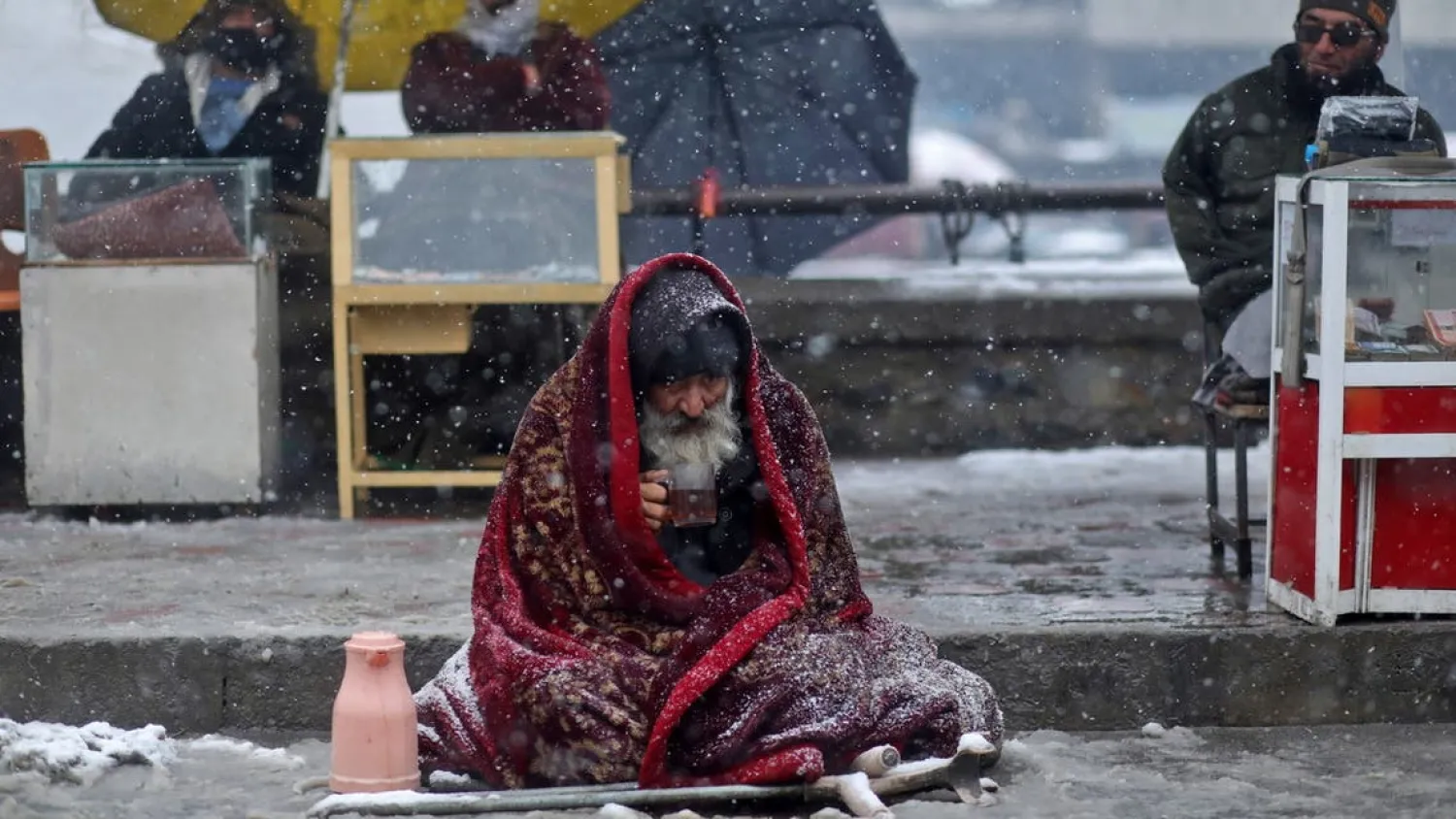The UN chief urged nations Wednesday to greatly boost humanitarian aid for millions of Afghans living in “a frozen hell” and release nearly $9 billion in frozen assets to pull Afghanistan’s economy back from the brink of a collapse that could set off a mass exodus of people fleeing the country.
“Time is of the essence,” Secretary-General Antonio Guterres told the Security Council. “Without action, lives will be lost, and despair and extremism will grow.”
Guterres said liquidity must be urgently restored to the Afghan economy. He said that means freeing up the country’s frozen currency reserves, re-engaging with its Central Bank and finding other ways to inject money, including allowing international funds to pay the salaries of doctors, teachers, sanitation workers, electricians and other civil servants.
China and Russia reiterated their calls for unfreezing Afghan assets, while US Ambassador Linda Thomas-Greenfield said the Biden administration is examining “various options to ease the liquidity crunch.”
She said the United States, which announced an initial contribution of $308 million in humanitarian aid for Afghanistan on January 11, remains the largest provider of assistance to the country.
"Much more support from the international community will be required to meet the extraordinary level of need the Afghan people are experiencing,” she noted, The Associated Press reported.
Afghanistan’s aid-dependent economy was already stumbling when the Taliban seized power last August amid the chaotic departure of US and NATO troops after 20 years. The international community froze Afghanistan’s assets abroad and halted economic support, unwilling to work with the Taliban, given the brutality during their 1996-2001 rule and refusal to educate girls and allow women to work.
Guterres said the World Bank’s reconstruction trust fund for Afghanistan transferred $280 million last month to the UN children’s agency UNICEF and the World Food Program. He urged the remaining $1.2 million to be released urgently to help Afghans survive the winter.
Deborah Lyons, the UN special representative for Afghanistan, told the council that the more than $4.4 billion humanitarian appeal the UN launched two weeks ago for Afghanistan -- the largest in the UN’s history for a single country -- “is roughly the same amount that donors spent on the entire operating budget of the government.” Most of that budget support came from the United States.
The UN says 8.7 million Afghans are on the brink of starvation, and Guterres said over half the population faces “extreme levels of hunger.”
“More than 80 percent of the population relies on contaminated drinking water, and some families are selling their babies to purchase food,” he warned.
The council adopted a resolution last month affirming that humanitarian aid to Afghans doesn’t violate sanctions against the Taliban, but China’s UN ambassador, Zhang Jun, claimed aid “is being used as a bargaining chip, a political tool.”
That is “playing games with the lives and well-being of 38 million Afghans who are in dire need of relief,” Zhang said, saying that freezing Afghan assets and unilateral sanctions “are no less lethal than military intervention.”
If Afghan women “can’t even have food or survive, then the talk of education, employment and political participation will become empty words,” he added.
Deputy Russian Ambassador Dmitry Polyansky warned that unless the issue of unfreezing Afghanistan’s assets is quickly solved “Afghanistan has no long-term prospects to make it out of this crisis.”
“We call on the United States and other Western donors to get the money back to the country,” he said. “The money belongs to the Afghan people and cannot be used for bargaining or as a tool to punish the Afghans for the new reality that has evolved in their country.”
Polyansky warned that the consequences of Afghanistan’s economic collapse will not only increase the number of refugees but will “spread terrorist activity, boost drug production and, as a result, lead to even greater instability both in the region and beyond.”
Lyons, the UN envoy, said in a video briefing from Kabul that it is clear donors are still not satisfied with political progress by the Taliban, either in including greater ethnic diversity in its government or in ensuring girls’ higher education and women’s opportunities to work.
This week, a high-level Taliban delegation met with Afghan civil society representatives in the Norwegian capital, Oslo.
Lyons noted that a joint communique from the talks highlighted that “understanding and joint cooperation are the only solutions to all the problems of Afghanistan.” She said now the Taliban “must act on it.”
Norwegian Prime Minister Jonas Gahr Støre, whose country holds the Security Council presidency this month and chaired the meeting, said the Taliban delegation also held direct talks with representatives from Norway, the US, France and Britain, but he stressed that did not signify recognition of the Taliban government.
“We have to talk to them, engage them and present very clear expectations, because Afghanistan is today facing a dire humanitarian crisis and a million children may starve,” Støre insisted in an interview with The Associated Press.
He said there were no negotiations, no agreement signed, but the talks as far as he could see were “the beginning of something that can lead to something.”









